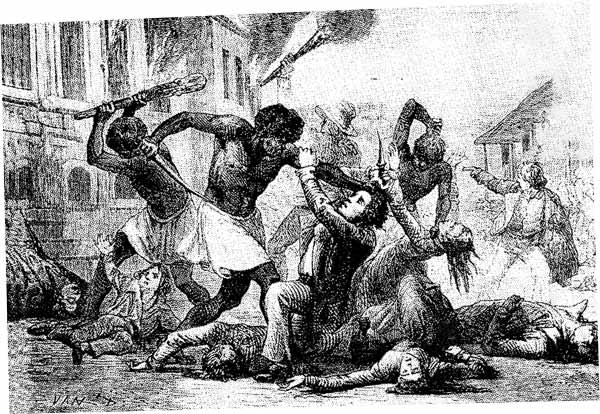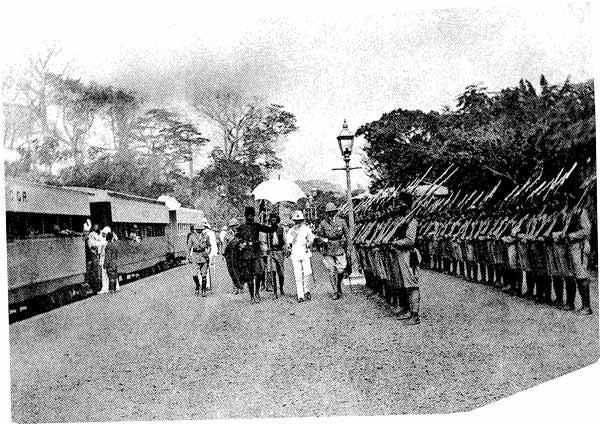Slavery, Plunder, Colonialism

SLAVERY


PLUNDER

In 1519 Cortés told Spain of the fabulous magnitude of Montezuma’s Aztec treasure, and fifteen years later there arrived in Seville a gigantic ransom—a roomful of gold and two of silver—which Francisco Pizarro had made the Inca Atahualpa pay before strangling him. Years earlier the Crown had paid the sailors on Columbus’s first voyage with gold carried off from the Antilles. The Caribbean island populations finally stopped paying tribute because they had disappeared: They were totally exterminated in the gold mines, in the deadly task of sifting auriferous sands with their bodies half submerged in water, or in breaking up the ground beyond the point of exhaustion, doubled up over the heavy cultivating tools brought from Spain. Many natives of Haiti anticipated the fate imposed by their white oppressors: They killed their children and committed mass suicide. The mid-sixteenth-century historian Fernández de Oviedo interpreted the Antillean holocaust thus: “Many of them, by way of diversion, took poison rather than work, and others hanged themselves with their own hands.”
— Eduardo Galeano, Open Veins of Latin America: Five Centuries of the Pillage of a Continent

COLONIALISM

During the 350 years of the industrial age, a good fraction of Europe consumed more than it produced, by the simple expedient of owning most of the world and exploiting it for their own economic benefit. As late as 1914, the vast majority of the world’s land surface was either ruled directly from a European capital, occupied by people of European descent, or dominated by European powers through some form of radically unequal treaty relationship. The accelerating exploitation of fossil fuels throughout that era shifted the process into overdrive, allowing a minority of the Earth’s population, not only to adopt what were, by the standards of all other human societies, extravagantly lavish lifestyles, but to be able to expect that those lifestyles would become even more lavish in the future.
John Michael Greer, The Wealth of Nature: Economics as if Survival Mattered, New Society Publishers
Join the Third Force Collective to access our revolutionary briefings.
This isn't a paywall. You can close it if you just want to read the article below it. But our aim is to win the planetary endgame — we want to catalyze a moment of truth, a stunning reversal of perspective from which corpo-consumerist forces never fully recover. For that we need you.






